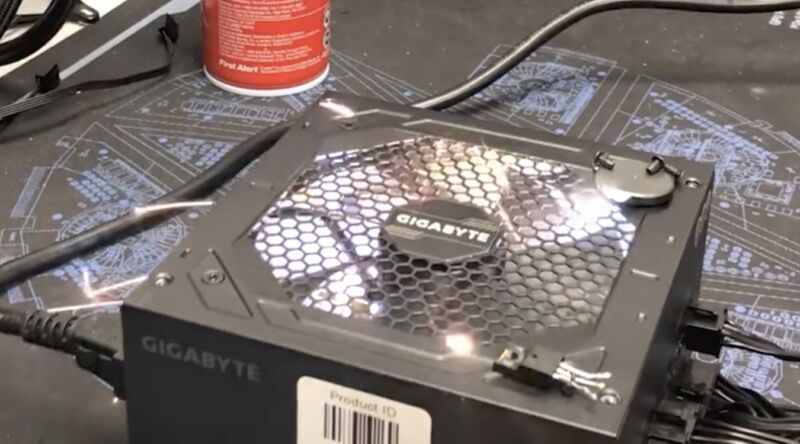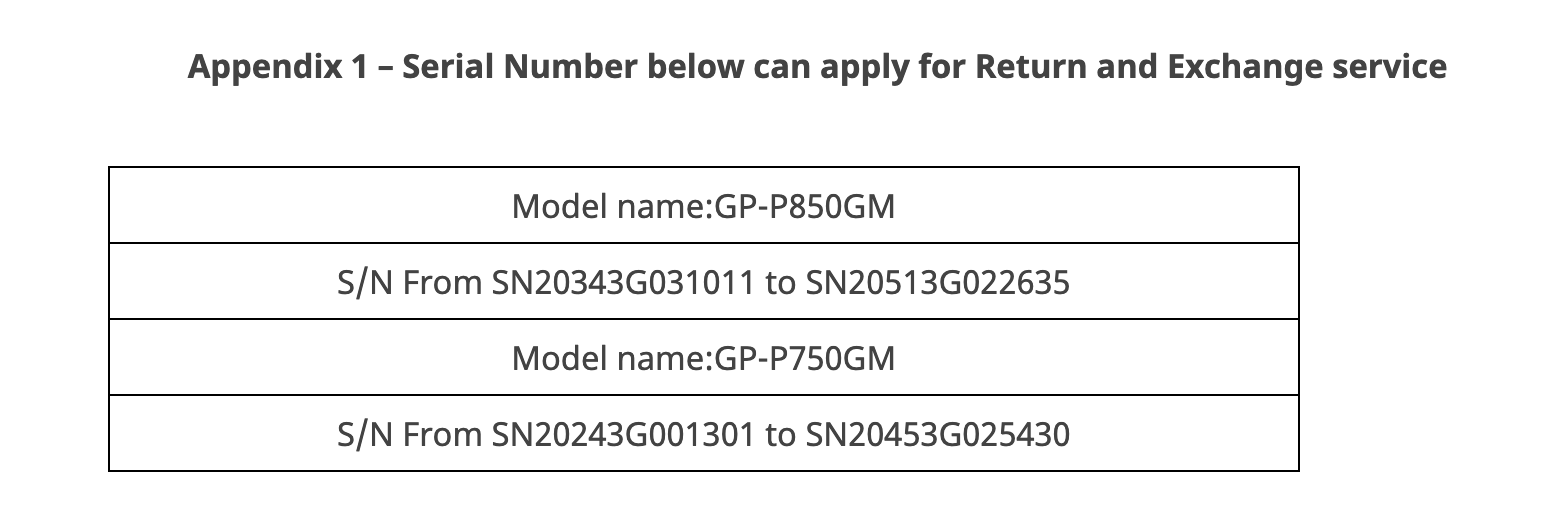Gigabyte will replace exploding power supplies Newegg sold to desperate GPU buyers

Enlarge / A Gigabyte power supply explodes during Gamers Nexus' testing. (credit: Gamers Nexus)
If you've been trying to buy a GPU this year, you may be familiar with the Newegg Shuffle, a lottery system that Newegg instituted in January to try to beat bots and scalpers. You may also know that the GPUs and consoles in the Newegg Shuffle are often bundled with components like RAM, motherboards, and power supplies as a package deal—if you want dessert (in this case, a GPU), you have to eat your vegetables (or, a product you might be able to use but weren't looking to buy).
Earlier this month, the PC gaming YouTubers at Gamers Nexus posted a video showing that two Gigabyte power supplies commonly bundled with GPUs in the Newegg Shuffle were prone to "catastrophic" failure. Some of the GP-P850GM and GP-P750GM models that were tested sparked as they died, creating a fire risk, and one also ruined an attached RTX 3080 GPU. Gigabyte has now released a statement that (inaccurately) takes issue with Gamers Nexus' findings before outlining how the company is addressing the problem and offering exchanges for anyone who has bought a power supply within the affected range of serial numbers (the company has stopped short of a formal recall, however).

Affected GP-P850GM and GP-P750GM models can be exchanged, whether they've actually failed or not. (credit: Gigabyte)
Gigabyte claims that the Gamers Nexus team ran the power supplies over capacity for "extended lengths of time" and that these conditions "would not be typical of any real world usage." In a response video posted today, Gamers Nexus pointed out that this mischaracterizes their tests, which were carefully designed to find where the power supplies' Over-Power Protection (OPP) feature would trigger and shut the power supply off (as OPP is designed to do, when functioning properly). The power supplies were then left to sit for a few minutes and brought back online at 60 percent of their capacity to ensure that they were still working properly after the shutdown—the full testing methodology section of the first video is here. Gamers Nexus also pointed to numerous product reviews claiming that the power supplies had shown up dead on arrival, before they were ever installed or used.
Read 3 remaining paragraphs | Comments
from Tech – Ars Technica https://ift.tt/3k4QL0n
Comments
Post a Comment